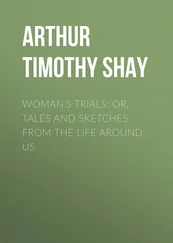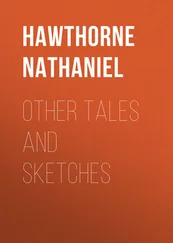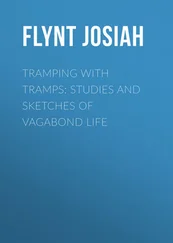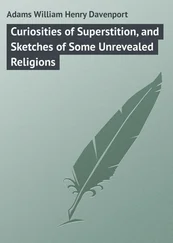David Bone - Scottish Football Reminiscences and Sketches
Здесь есть возможность читать онлайн «David Bone - Scottish Football Reminiscences and Sketches» — ознакомительный отрывок электронной книги совершенно бесплатно, а после прочтения отрывка купить полную версию. В некоторых случаях можно слушать аудио, скачать через торрент в формате fb2 и присутствует краткое содержание. Жанр: foreign_antique, foreign_prose, на английском языке. Описание произведения, (предисловие) а так же отзывы посетителей доступны на портале библиотеки ЛибКат.
- Название:Scottish Football Reminiscences and Sketches
- Автор:
- Жанр:
- Год:неизвестен
- ISBN:нет данных
- Рейтинг книги:4 / 5. Голосов: 1
-
Избранное:Добавить в избранное
- Отзывы:
-
Ваша оценка:
- 80
- 1
- 2
- 3
- 4
- 5
Scottish Football Reminiscences and Sketches: краткое содержание, описание и аннотация
Предлагаем к чтению аннотацию, описание, краткое содержание или предисловие (зависит от того, что написал сам автор книги «Scottish Football Reminiscences and Sketches»). Если вы не нашли необходимую информацию о книге — напишите в комментариях, мы постараемся отыскать её.
Scottish Football Reminiscences and Sketches — читать онлайн ознакомительный отрывок
Ниже представлен текст книги, разбитый по страницам. Система сохранения места последней прочитанной страницы, позволяет с удобством читать онлайн бесплатно книгу «Scottish Football Reminiscences and Sketches», без необходимости каждый раз заново искать на чём Вы остановились. Поставьте закладку, и сможете в любой момент перейти на страницу, на которой закончили чтение.
Интервал:
Закладка:
They all knew and admired the neat little girl who, among other blithe and gentle faces, turned out to see the leading football matches, to cheer the players when they won, and chaff them when they lost.
They were married – Pate Brown and Lizzie Green – and in presence of his old club companions, whom he had invited to spend an evening at his new house, Pate told the simple story of how he had got married to his little darling a year sooner than he expected, all through drawing the Queen's Park in a "Sweep for the Cup."
IV. – FAMOUS ASSOCIATION PLAYERS – PAST AND PRESENT
Little did the comparatively small but orderly group of enthusiastic spectators who met around the ropes at Hamilton Crescent Ground, Partick, eighteen years ago, to witness the first International Association match, imagine the ultimate development of the Association style of play in Scotland, and in after years the triumphs which awaited her sons in contests with England. I was present, and shall never forget the manner in which the teams – both Scotch and English – acquitted themselves, and made a drawn game of it.
The Five Dead Internationalists
The ranks of the past crack players are beginning to get thinned by the common enemy of mankind. When I think of the busy feet, blithe and happy faces, and merry voices that joined in the game twenty years ago, a sense of sadness comes over me which it is difficult to dispel. "The first International, sir;" yes. Five of the gallant eleven who fought Scotland's battle are dead. Poor Gardner, Smith, Weir, Leckie, and Taylor, football players, have cause to remember thee! It was a hard struggle to keep up football in those days, and as there were no club funds all the items of expenditure had to be brought forth from the capacious pockets of the members. They loved the game, however, those primitive players, and engaged in it for its own sake, without ever thinking of reward. In the words of a great poetess, "We shall sing their praise ere long;" and while it may be thousands of dribblers of the present never heard their names, it is but right that the young ones should not forget what they owe to the Association football pioneers. Yes, the boys of the old brigade are falling out of the ranks in which they served so well, never to muster again on this side the grave; while others, still toiling on, are "scattered far and wide, by mountain, stream, and sea."
Joseph Taylor
The admitted chief of the five who have gone to their rest was Joseph Taylor. Of a quiet and unassuming disposition, blended with remarkable firmness, no man who captained the Queen's Park was so much respected both on the field and in private life. None hated unfair or rough play more. He could not endure it in a club companion, and this was particularly so if his team were playing a comparatively junior combination. Taught in the early school of Association football, when the rules were much more exacting than they are now, he had, along with his colleagues in the Queen's Park, to fight their preliminary battles, and overcome the prejudices consequent on introducing the "reformation," so to speak, in football. Taylor developed into a first-class back when comparatively young, and was chosen to play for his club against England in 1872, when the Queen's Park met that country single-handed, and played a drawn contest. Considering his light weight, he was a fine tackler, returned very smartly to his forwards, and, possessing remarkable speed, completely astonished an opponent by clearing the ball away before the forwards of the opposing club were able to obtain any advantage. He had always a kind and encouraging word to young players, and in 1875 and 1876 was chosen captain of the Scotchmen, and played, in all, five times against England. He died in Govanhill about three years ago.
Robert Gardner
As the first captain of the Queen's Park in the International of 1872, and also chosen to that post next season in London, Gardner, who has also joined the great majority, was the most extraordinary player of his day. He was so versatile that I have seen him at work in all the different positions of the field – goalkeeper, back, half-back, and even forward – but it was as a goalkeeper that he excelled. A very indifferent kicker out in front, when the ball came up, he sometimes made mistakes with the feet; but when I remember the brilliant men who have since stood between the posts in Internationals and final cup ties, each in their line famous, I must confess that none ever used their hands and weight to greater advantage than Gardner. Possessing a peculiarity of temper which had much of the Scotchmen's sturdy independence, he had a difference with some of his friends, and left the Queen's Park to join the Clydesdale, and did much to assist that club to attain at the time the second position in Scottish Association football. Members of both clubs will not easily forget the manner in which Gardner kept goal for his new combination against the Queen's Park in a cup tie, when three matches had to be completed before the senior club won. He retired from the game some time before his death, which took place at South Queensferry a year and a half ago.
James E. Weir
Who could dribble and keep possession of the ball like Weir? In a football sense he was in everybody's mouth sixteen years ago, when crack forwards were few, and neat dribblers fewer. In all the contests the Queen's Park engaged in for ten years, none was more popular among the spectators, and emulated by the then young generation of players, than Weir. He always worked on the right side, and with William M'Kinnon, Angus Mackinnon, H. M'Neil, T. Lawrie, and T. C. Highet for companions, the exhibition of dribbling and passing, with the six forwards, was finer than is the case now with the five. The ball had then to touch the ground after being thrown in straight from the line before being played. Under those circumstances, heading by the forwards was never seen in the field, unless after a corner-flag kick. Well can I remember the match at Hampden Park against the London Wanderers, whom the Queen's Park defeated by six goals to none, when Weir, being tackled by the Hon. A. F. Kinnaird and C. W. Alcock, put his foot on the ball, shook off the two powerful Englishmen, and made a goal. The sad news only arrived lately from Australia, whither Weir had gone some years ago, of his demise. Deceased played in two Internationals, including that of 1872, and no finer dribbler ever toed a ball. He was, in fact, at the time designated the "Prince of Dribblers."
Joseph Leckie
In every condition of life, no matter the sphere in which one is placed, he has his own peculiarities, and, in a football sense, Leckie, above all the gallant throng who have disappeared for ever from the field, had his. Comparatively short of stature and powerfully knit together, with splendidly moulded limbs, Leckie was one of the most tenacious forwards. While dribbling past an opponent with the ball at his toe, his peculiarity asserted itself in such a way that, once seen, could never be forgotten. Weir, Smith, W. M'Kinnon, H. M'Neil, and, later on, Fraser, Highet, and Richmond, among the army of forwards brought out by the Queen's Park; to say nothing of M'Lintock, M'Intyre, and Baird (Vale of Leven), J. R. Wilson and Anderson (Clydesdale), T. Vallance and P. Campbell (Rangers), and A. Kennedy and J. Hunter (3rd L.R.V.), of whom I will say something later on, had all their imitators in the younger clubs, but Leckie had none. He was, in fine, a player by himself. When he obtained possession of ball, he guarded his body with extended arms drooping from his side, with the back of his hands in front of the thighs, and thus formed a barrier to an opponent who attempted to tackle or take the ball from him. He took part in the first International. He died about three years ago in South Africa.
Читать дальшеИнтервал:
Закладка:
Похожие книги на «Scottish Football Reminiscences and Sketches»
Представляем Вашему вниманию похожие книги на «Scottish Football Reminiscences and Sketches» списком для выбора. Мы отобрали схожую по названию и смыслу литературу в надежде предоставить читателям больше вариантов отыскать новые, интересные, ещё непрочитанные произведения.
Обсуждение, отзывы о книге «Scottish Football Reminiscences and Sketches» и просто собственные мнения читателей. Оставьте ваши комментарии, напишите, что Вы думаете о произведении, его смысле или главных героях. Укажите что конкретно понравилось, а что нет, и почему Вы так считаете.












